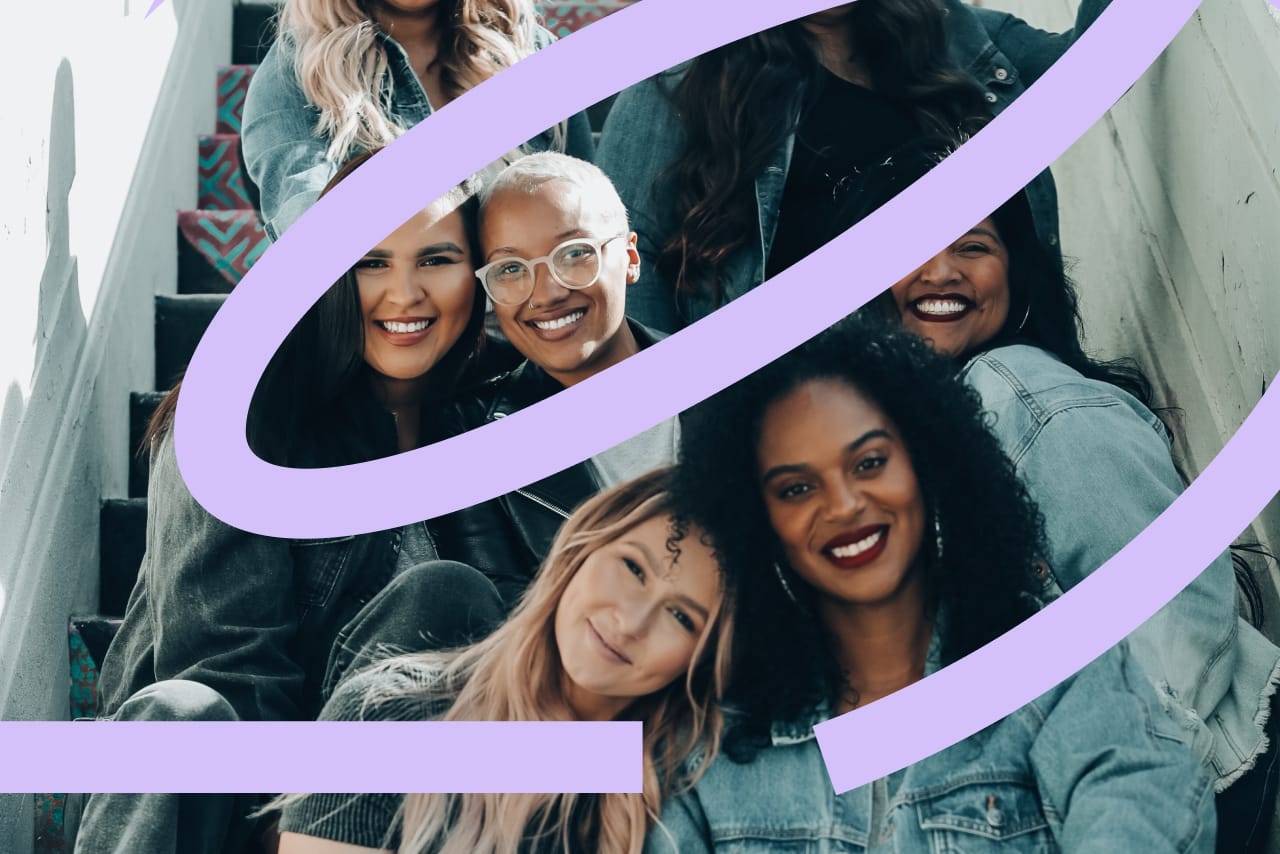International Women's Day has become a controversial topic at Xolo. Here's why…
.jpg)
on March 08, 2022 • 6 minute read

If you ever have the opportunity to explore Tallinn, you'll wander down the cobblestone streets of its charming Old Town (the best-preserved Old Town in Europe!). But travel outside of Old Town and you'll find a small but bustling modern city, complete with towering skyscrapers that have come to symbolize Estonia's growing might as a startup superpower and one of the most digitally advanced countries on the planet.
What you won't find is many relics of the 48 years that Estonia was under Soviet occupation. Since the fall of the USSR in 1991, Estonia has made significant efforts to distance itself from memories of its Soviet past. But a few traditions remain. And one of these traditions happens to be International Women's Day.
International Women's Day gained popularity during Soviet times and has endured as a day of recognition for all the work (professional and domestic, paid and unpaid) that women do 365 days of the year. The 8th of March is a day that many Estonian women, who make up more than 50% of the population, traditionally receive flowers and chocolates from the men in their life — both personal and professional. My own anecdotal research has shown that many companies in Estonia's tech sector have chosen to either modernize their approach to IWD — or abandoned it completely.
When Xolo was founded in 2015, back in the good old days of LeapIN, it was an Estonian company operated exclusively by Estonians. But in the seven years since, Xolo has experienced more than just a name change. Last year, Xolo launched its first localized product, Xolo Spain. This January, we launched Xolo Italy, with plans to introduce tailored solutions in more European countries over the next few months.
And while Xolo is still an Estonian company, more new faces from new places are joining the team. As this blog post is published, Xolo has 15+ nationalities, working from 11 different countries. And with this growing diversity isn't just reflected in the demographics, but in opinions, too. And, as we are learning, there are radically different opinions about how International Women's Day should be celebrated — if at all.
So how is International Women's Day received in these different countries? We thought we'd ask the women of the Xolo branding team, one of the most ethnically diverse teams in the company:
"Here in Spain, Woman’s Day is commonly known as 8M (referencing the date) and it’s a fairly new “holiday.” I’m using quotation marks here because it’s technically a work day. And that’s why, on this day, women in Spain go on strike to bring visibility to the fact that women make up a huge part of the workforce. Every year there are marches and demonstrations to fight against inequality."
Marta, Communications Specialist - Spain
"Women’s day is not traditionally a big and recognised celebration in Finland, not privately and especially not in a professional context. What it means in practice is that women do not expect to receive flowers (and mostly don’t), but there’s still a lot of attention put on the topic in the media. It is mainly used to draw attention to women’s equal rights in society and draw attention to shortcomings e.g. in the pay gap, women’s role in corporate management boards, and even the way we talk about women in positions of power (the era of "female managers" and "boss babes" is officially over).
Women’s day nowadays has more of a connotation with equality in general; it is a widely publicized day in the media in regards to statistics related to gender equality. Some companies that specifically target women audiences may use it for marketing purposes, but it is not a widely recognised day and I would even argue that many people (both men and women) do not even know/remember when the date of women's day even is!"
Elina, CMO - Finland
"Sweden is a country that many people would consider pretty progressive in gender equality. I’d say a lot of women in Sweden would agree, but there’s still a long way to go, and topics to be addressed — violence against women, the lack of women in corporate positions of power, and the gender pay gap to name just a few. Gender equality questions and injustice are something that is addressed in Sweden all year round, not just on the 8th of March or during International Women’s Month. These discussions are present in the society throughout the year; in media, discussions in schools and universities, within companies, both externally and internally, and even within families.
Even so, International Women’s Day is still a day of much importance, but it’s not a day for celebrations. It’s a day to remember to continue fighting for injustices and gender equality. That's why on the 8th of March, its popular for women to gather and protest in marches on the streets, just like in Spain, in the continuing fight for our equal rights in society."
Elina, Senior Brand Designer - Sweden
"In Italy, as elsewhere in the Western world, Women's Day has gradually become almost exclusively the prerogative of the marketing activities of many companies, with operations that are often blatant pink-washing. The last two years of the pandemic, however, have had the advantage of encouraging a certain awakening of consciences, also in terms of women's rights.
On 8 March 2021, the Non Una Di Meno Association called a 24-hour general strike aimed at grassroots unions, but also involving those individuals not recognized by the workplace; those who lost all forms of income during the pandemic, along with migrants, too. There is still a lot to do in terms of the gender pay gap and protection of women. We know there is still a long way to go but we finally know we don't have to do it alone."
Angela, Marketing Manager - Italy
"In Estonia, Women’s Day has mostly been seen as a dedicated day for celebrating the women around us, just as we’re celebrating love and friendships on Valentine’s Day. Marketeers, of course, make good use of the gifting traditions of this special day. There are a lot of themed restaurant dinners and concerts dedicated to women, as well as special sales promotions.
Traditionally, women and girls are gifted flowers or chocolate as a nice gesture of showing they’re thought of. Each year, there are more public discussions and media articles published about the gender pay gap and gender equality, but the majority of people do not see it as a day for protesting or marching for women’s rights."
Elis, Junior Digital Marketing and Social Media Specialist - Estonia
In my own native USA, International Women's Day is largely viewed through a cynical lens as little more than a holiday championed by the marketing departments of greeting card companies to boost profits between Valentine's Day and Easter. And I'd be lying if I said I wasn't touched when a bouquet of tulips and a box of chocolates was hand-delivered to my home office last year — by one of Xolo's cofounders, no less! But I was also confused. It's always nice to be recognized by your employer. But why am I being recognized for my gender, rather than my skills as a copywriter and/or marketer?
So who is right and who is wrong in this scenario? How do we move forward? And why are we even making such a big deal over flowers and chocolates, anyways?
We don't claim to have all the answers. But this moment (which has created a bit of a headache for our HR team) is symbolic of a larger theme: as Xolo continues to grow there will be even more of a diversity of opinion about issues that many have always seen as non-issues. And to make sure everyone feels included, we need to be ready to listen with eyes open to viewing from new perspectives.
As I am putting the finishing touches on this blog, I will soon head to the Xolo Tallinn office to celebrate International Women's Day with my colleagues. But we're also publishing this blog post to bear witness to the fact that change is in the air — and that's not necessarily a bad thing.
What happens after March 8th?
Xolo will be celebrating International Women's Day the traditional way this year. But during the other 364 days of the year, we'll continue to:
- Improve our own internal policies and hiring practices
- Work toward closing the gender gap within our userbase (more on that next week)
- Promote women to more senior leadership roles: currently the gender divide within Xolo is
- 109 employees: 61% female, 39% male
- Management: 1 female, 3 males
- Team leads (including management): 11 females, 6 males
- Can we improve? Stay tuned for our blog post on 8/3/23…
- As we expand, be open to new traditions, opinions and ideas even if especially if they are at odds with "the way things have always been"
Finally, we (still) acknowledge that women are not the only minority under-represented on our platform — or in our company, for that matter. We still believe that Freelancing is for Everyone and just as we believe freelancing is the future of work, we know that a culture of diversity and inclusion is the only way forward. This requires more than empty words, but a real commitment to looking at old problems in new ways, to listening, to recognizing our privilege and biases — and doing the work to transform Xolo into the inclusive, benevolent brand we know we can be. We are committed, and we're ready to spend the next 11 months of the year proving it.
**Editor's Note: While we are proud to publish the stories of successful Xolopreneurs (who happen to be female) during the other 11 months of the year, this Women's Month we'll continue our tradition of publishing Solo Stories that highlight the experiences of female freelancers along with content that inspires, educates and offers new ideas to existing problems. Our work to find sustainable solutions for making freelancing more inclusive continues year-round.
